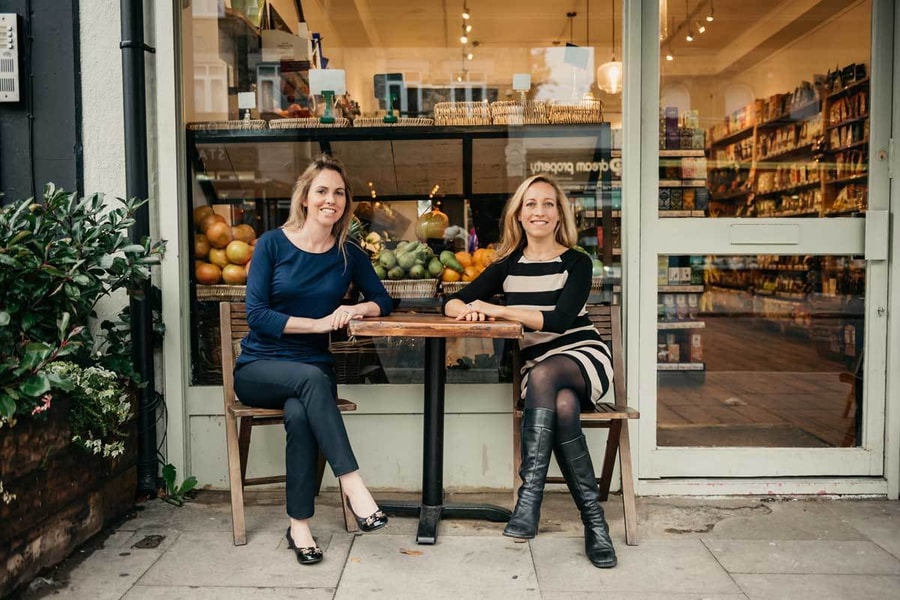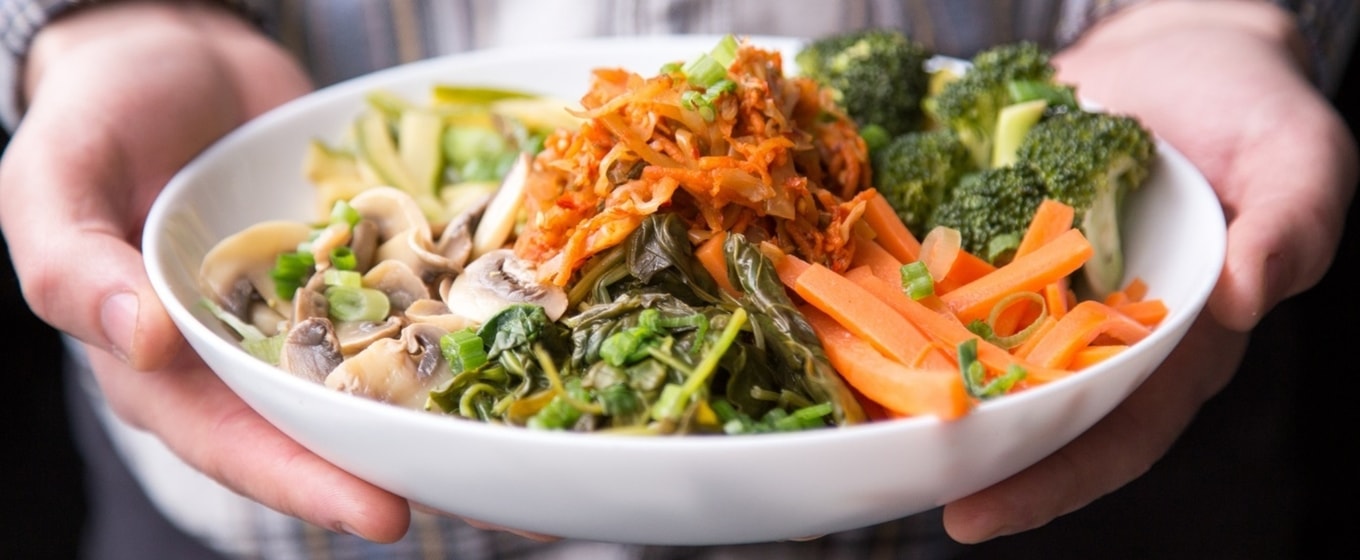With media focus in recent months drawing attention to our personal responsibility when it comes to the environment, it’s clear that sustainability issues such as food waste are having their moment, and rightly so. According to the food waste campaign, Love Food, Hate Waste, in the UK alone, it’s reported that an estimated £15 billion worth of food – the equivalent of 7.3 million tonnes – was thrown away in 2015. But, the waste doesn’t just affect our pockets, it’s incredibly detrimental to the environment too. For one, food that decomposes or rots releases methane gas, a significant contributor to global warming and climate change. It also wastes the water used to grow the food we throw away, and the fuel it takes to transport these goods.
Food waste is not new, but restaurants and supermarkets are looking at ways to reduce their impact; whether that’s by removing ‘best before’ dates on fruit and vegetables, working with charities such as FareShare to fight hunger and food waste, or finding inventive ways to use leftover produce. In turn, companies like OLIO and Karma are opting for tech-driven solutions to make it easy for individuals and businesses alike to be part of the food waste revolution. OLIO connects neighbours with one another and with local shops so surplus food can be shared rather than thrown away. Similarly, users can browse the Karma app to find unsold food from restaurants to purchase at half the price.
We had the chance to speak to both Tessa Clarke, OLIO’s co-founder, and Karma’s co-founder, Elsa Bernadotte to discuss their missions on tackling food waste, the biggest challenges they’ve faced so far, and what the future holds for the food industry.
As media focus on our environmental impact is helping to change our attitudes, what do you think the future holds for the food industry and how will this affect your business?
TC: We live in very interesting times for our food industry because the status quo is quite simply unsustainable. We have widespread waste, hunger and obesity co-existing alongside one another, coupled with the fact that agriculture is one of the largest contributors to climate change. If that wasn’t bad enough, as we look to the future there are another 2.2 billion people joining the planet by 2050 meaning that we need to increase global food production by 50%. In light of this very challenging set of factors it’s clear that significant transformation of the food system is urgently required. We believe that as public awareness of food waste continues to grow, this will be extremely beneficial for OLIO. This is because balancing supply and demand of food will continue to be difficult as shops will always need full shelves, whilst households will always over-cater for parties, go on diets, go on holidays, or work late. Therefore an app that conveniently connects you with your neighbours will play an increasingly important role in all of our lives.
EB: Food waste is no sideline issue — the European food sector accounts for 11 million tonnes of edible food waste annually, not to mention the astronomical amount of resources required for production. With the increased media coverage on waste, there has been a shift in the food industry and we’ve been pleasantly surprised by the enthusiasm to address the sustainability issue and eagerness to apply a new technology. For consumers, incorporating environmentally-friendly solutions into daily life is becoming the norm. This new wave of thinking will contribute to Karma’s continued growth, and ultimately, help solve the food waste problem.
Why did you feel that the industry needed disrupting, and how did you identify the gap in the market?
TC: The inspiration for OLIO came when I was moving to a new country and on moving day, I found myself with some good food that we hadn’t managed to eat, but I couldn’t bring myself to throw it away. So, I set off on a wild goose chase to try and find someone to give it to, and I failed miserably. It seemed crazy to me that I should have to throw this food away when there were surely plenty of people within hundreds of metres of me who would love it. The problem was they just didn’t know about it. From there the idea of OLIO was born. When my co-founder Saasha and I started researching the problem of food waste, what we discovered shocked and horrified us; globally a third of all the food we produce gets thrown away, meanwhile 800 million people go to bed hungry and food waste is the third largest source of climate change. In the UK alone, over half of all food waste takes place in the home with the average UK family. Our research identified that 1 in 3 people are “physically pained” throwing away good food, and yet there has been no innovation since the rubbish bin. This makes us extremely excited to launch OLIO as the world’s only neighbour-to-neighbour food sharing app.
EB: A staggering third of all food produced is thrown away which results in an average of 1.3 billion tonnes of waste each year! For an industry where even a 0.01% inefficiency can leak tonnes of waste, there needed to be a safety net for where and when surplus does occur. To identify the market gap, we worked closely with food industry professionals and end-consumers to obtain important insights into societal attitudes towards waste; especially how to create a long-lasting change in food waste management.

OLIO uses the passion of volunteers to help spread the word about their app and the food waste revolution
What have been the main challenges you've faced building your product?
TC: One of our biggest challenges has been growing the user base with a marketing budget of close to zero! We’ve overcome this thanks to our Ambassador programme which harnesses the passion and energy of thousands of volunteers to spread the word about OLIO in their local communities. At the moment, we have over 20,000 ambassadors and over half a million users, so it’s working incredibly well! Another challenge is encouraging new users to take a leap of faith and add a listing. It’s hard to believe, but over 40% of all food added to the app is requested in less than one hour! We ask absolutely everybody to just give it a try, and once they’ve experienced how fun and easy it is to share food with a neighbour, they’re converted.
EB: Our main challenges have been driving awareness, changing the perception of waste in society, and launching in a new market. After establishing ourselves in Stockholm, London is our current focus; the city has one of the best food scenes in the world, a high number of food retailers who care about sustainability, and consumers who are both digitally native and environmentally-conscious. We think it’s a perfect match for a solution like Karma.
What advice would you give to other entrepreneurs and business owners aiming to disrupt their industry?
TC: My advice would be threefold. Firstly, make sure that you are truly passionate about the problem you are solving, and ensure that this translates into a very strong mission for the company; secondly, read Eric Ries' The Lean Startup and The Mom Test by Rob Fitzpatrick if you haven’t already, and really absorb the incredibly important messages that both contain; thirdly, see if you can test your idea in a low cost way, ideally by leveraging existing platforms to get feedback before investing your life savings and/or raising capital. We tested OLIO using WhatsApp and it was an invaluable exercise. Finally, have fun because life is short!
EB: My piece of advice to budding entrepreneurs is to focus and persist, no matter what the challenge. Disrupting an industry is inherently difficult with many roadblocks but that’s part of the journey, and they will accelerate your learning and growth as an entrepreneur. At the end of the day, there’s no magic: it’s all hard work, and practice, practice, practice.
From the successes seen from OLIO and Karma thus far, it’s evident that people aren’t afraid to get involved in the food waste revolution, creating a strong business case for tackling food waste thanks to the simple yet effective premise that makes it easy for consumers to adopt. Whilst food waste is an issue that will take years to tackle, OLIO and Karma are paving the way for changes in the food industry.




These cookies are set by a range of social media services that we have added to the site to enable you to share our content with your friends and networks. They are capable of tracking your browser across other sites and building up a profile of your interests. This may impact the content and messages you see on other websites you visit.
If you do not allow these cookies you may not be able to use or see these sharing tools.